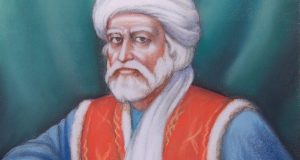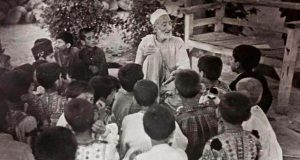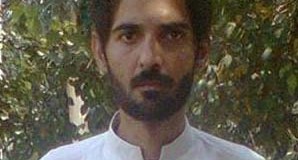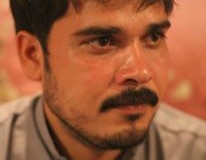Khushal Khan Khattak (1613-1689), is an iconic figure in Pashtun history, literature and culture, often referred to as the national poet of Pashtuns. The life and character of Khushal Khan Khattak presents a complex, multifaceted terrain, considering he was not simply a great Chieftain and poet, but also a hunter, physician, philosopher, scholar and thinker (Shaheen: 2007). It would be ...
Read More »Pashtun & Pashtunwali
Bacha Khan’s Movement of Social Reform and Non-Violence: A Reappraisal
In 1929 when British Colonial power had reached its zenith on the Indian sub-continent, a movement which advocated egalitarian social reform, unity and non-violent political action began in what was then known as the North West Frontier Province (NWFP). The Khudai Khidmatgar (KK) movement, meaning ‘Servants of God,’ was established under the charismatic leadership of Khan Abdul Ghaffar Khan (aka: ...
Read More »The Saffarid Period in Afghanistan
Following the fall of Sassanid Empire, two centuries of Arab hegemony in Khorasan was never popular in the Pashtun belt. This is evident from fierce resistance that was offered here to all Arabian attacks. A change in political realities, however, had come hard on the heels of Arab troops in Khorasan, even as for the most part there was nowhere ...
Read More »Pashtuns and Pashtunwali
Pashtun is a Central Asian nation that lies between the rivers Oxus and Indus. Pashtun is also known as Afghan, Pakhtun and Pathan; the latter name, however, is construed as offensive by the Pashtun people because, it is said, that the name ‘Pathan’ was given to the Pashtun by the British during their rule in India. The land of Pashtun ...
Read More »Pashtuns and Modernity: The Conversion of Pashtun People to Islam
At the end of the 4th century A.D, the raids of Ephthalites posed a formidable threat to the Eastern province of Sassanian Iran. Although at first Ephthalites were not much successful against the Sassanid rulers Bahram Gur and Yazdegerd II, yet towards the end of 5th century, by the year A.D. 483, they gained much ground in Afghanistan, made successful ...
Read More »Pashtun and Modernity: Historical Context of Pashtun Modernity before Islam
Pashtuns and modernity as a subject offers immediate pitfalls. It is profuse with cultural distinctiveness and idiosyncrasies, and may prove quite difficult at times for any learned foreign observer to grasp. On the other hand, from a Pashtun point of view, the outer world sometimes seems needlessly complex and tangled, irrationally busy, and while abundant in riches, psychologically as horrible ...
Read More »A Review of ‘The Pathans’ by Ghani Khan
Ghani Khan (1914-1996) was born in Hashtnagar (Charsadda), Pakhtunkhwa. Ghani was the eldest son of the great Pashtun political and spiritual leader Khan Abdul Ghaffar Khan (aka: Bacha Khan) (1890-1988), who dedicated his life for the freedom, education, empowerment and cause of Pashtun people. Renowned and revered for his peaceful campaign of social and political reform, Bacha Khan was nonetheless ...
Read More » Pashtun Times Latest News
Pashtun Times Latest News





